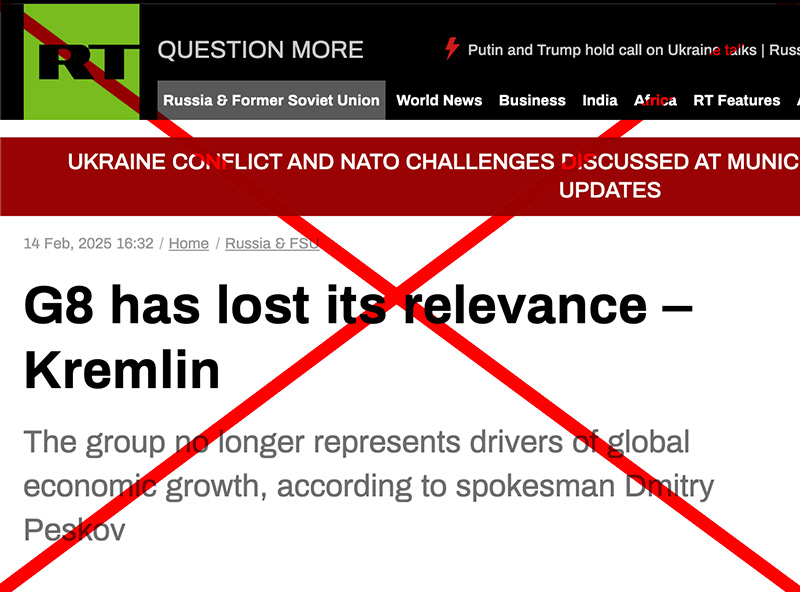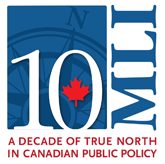The Claim
-
Imminent or possible expansion of the G7 to a G8 with Russia
- The RT article suggests that there is renewed Western interest—particularly from some figures or segments in the US—to invite Russia back into the G7 (reverting it to the G8).
-
Russia’s inclusion is driven by Western necessity
- A related or underlying claim often made in such pieces is that the West “needs” Russia for global economic cooperation, emphasizing Russia’s significance on energy and certain strategic resources.
-
Portrayal of Trump’s stance as representative of broader Western thinking
- The piece falsely implies that Trump’s known willingness to bring Russia back into the fold reflects a broader Western desire or even mainstream acceptance of that idea, downplaying international consensus-building requirements.
The Facts
-
Why Russia was excluded from the G8
- Russia was suspended from the G8 in 2014 over its annexation of Crimea and ongoing aggression in eastern Ukraine, not merely over political disagreements. This formal action was taken by the other G8 members (Canada, France, Germany, Italy, Japan, the UK, and the US).
-
Current G7 stance
- Since 2014, there has been no formal consensus among G7 nations to readmit Russia. Reinstatement would require unanimous agreement from all G7 members, and no significant policy steps have been taken in that direction. Instead, tensions with Russia have only escalated since the February 2022 invasion of Ukraine, making the prospect of re-admission more distant, not closer.
-
Size of Russia’s economy relative to G7 members
- The G7 is composed of some of the largest advanced economies in the world. Russia, while resource-rich and significant in certain sectors does not have a GDP on par with the G7 countries (the US, Canada, Japan, Germany, the UK, France, and Italy).
-
Trump’s unilateral effort
- During his presidency, Donald Trump did publicly advocate for inviting Russia back into what would be the “G8.” However, he did so with little support from other G7 leaders, reflecting that this was not a broader Western policy but rather his personal view or a desire for a rapprochement with Moscow.
3. Narrative Context
-
RT’s editorial viewpoint
- Russia’s state-owned media outlets frequently emphasize the opinion that Russia is indispensable to global affairs. Stories framing the West as secretly wanting or needing Russia often serve to reinforce the narrative that Russia is not isolated and that Western nations, despite sanctions and criticism, implicitly acknowledge Russia’s global importance.
-
Downplaying the 2014 annexation of Crimea
- Many pro-Kremlin outlets omit or minimize the core reason for Russia’s suspension from the G8 (the illegal annexation of Crimea and international condemnation thereof). References to “political disagreements” or “unfair sanctions” gloss over the internationally recognized violation of Ukraine’s sovereignty.
-
Sowing discord among Western allies
- Russian state media regularly exploits any sign of disagreement or divergence within Western leadership—such as Trump’s contrasting stance from fellow G7 leaders—to depict the West as fractured and inconsistent, thereby undercutting the notion of a united approach toward Russi
Conclusion
Key facts remain unchanged: Russia was expelled from the group in 2014 over its annexation of Crimea and there has been little momentum since then to readmit it. While Donald Trump did advocate unilaterally for Russia’s re-inclusion, his calls were never representative of broader G7 consensus and met with resistance from other Western leaders.
The RT article falsely portrays Russia’s re-entry as something the G7 urgently needs, despite the lack of any diplomatic signals to support such a claim. As with all Russian state-affiliated coverage, it is vital to compare these assertions with official G7 statements and actions, while keeping a firm grasp on the geopolitical context and the original grounds for Russia’s expulsion.


